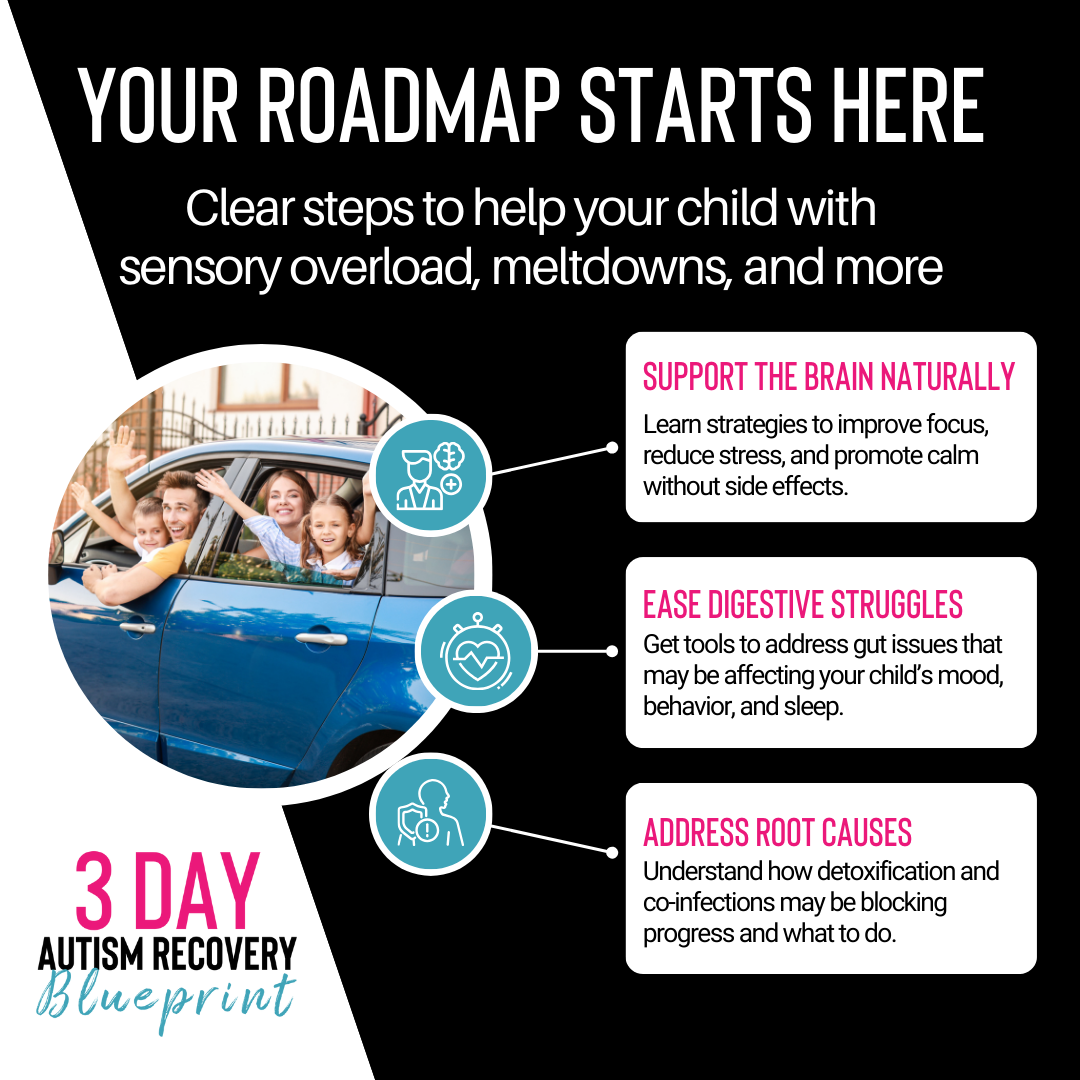The Parents Guide To Preventing Overwhelm In Autism Recovery Steps [Podcast Episode #203]
This episode is designed to resonate with parents by addressing common barriers to action, such as fear, confusion, and overwhelm, while also offering solutions that empower them to take action for their child’s recovery.
As a parent of a child with autism, you’re no stranger to the challenges of daily routines, therapy sessions, and creating an environment where your child can thrive.
However, even with the best intentions, procrastination can creep in, especially when implementing critical steps toward your child’s recovery.
Today, we’ll explore why parents may delay taking action, how overwhelm can lead to procrastination and affect progress, and, most importantly, how to overcome it to ensure the best outcomes for your child.
Why Do Parents Procrastinate in Implementing Recovery Steps?
Raising a child with autism often feels overwhelming, and for parents, it’s common to experience moments of doubt, fear, or exhaustion. Here are some key reasons why procrastination may happen:
- Fear of Failure: The fear of not doing enough, or not doing things “right,” can be paralyzing. Parents may delay starting a new therapy or intervention because they worry about whether it will work.
- Lack of Time or Energy: Managing a household, work, and other responsibilities can drain your energy. The extra tasks associated with autism recovery, such as therapy appointments, dietary adjustments, or implementing behavioral strategies, may feel daunting.
- Uncertainty or Confusion: With so much conflicting information online, it can be hard to know which steps to take first. When parents feel unsure about which approach is best for their child, it’s easy to delay making a decision.
- Emotional Overwhelm: After an Autism diagnosis, it’s common for parents to experience a range of emotions, including sadness, frustration, or anxiety. These emotions can sometimes make it difficult to take action, even when you know what needs to be done.
How Procrastination Affects Your Child’s Progress
Procrastination can have a significant impact on your child’s progress. Early intervention is crucial for children with autism. The earlier you implement strategies, and educational plans, the better the long-term outcomes for your child. Delaying important steps could slow down your child’s development and create additional challenges in the future.
In addition, procrastination can lead to stress and guilt for parents, which may further delay action. It becomes a vicious cycle—feeling overwhelmed, avoiding tasks, then feeling even more overwhelmed by the mounting to-do list.
Overcoming Procrastination: Practical Tips for Parents
Fortunately, procrastination doesn’t have to stand in the way of your child’s progress. Here are actionable strategies to help you get started:
- Break Tasks Into Small Steps
One of the most effective ways to tackle procrastination is to break down larger tasks into smaller, manageable steps. For example, instead of feeling overwhelmed by the idea of setting up multiple programs or appointments, start by researching one option that will move you forward. Taking small steps builds momentum.
- Set Realistic Goals
It’s essential to set realistic, attainable goals for both yourself and your child. Focus on one area of improvement at a time. Celebrate small wins, such as your child learning a new communication skill or responding positively to a new therapy.
- Create a Schedule
Establishing a routine can help you stay on track. Create a daily or weekly schedule that includes time for implementing recovery steps, whether it’s practicing social skills, implementing a new supplement, or engaging in sensory activities. Consistency is key.
- Seek Support
Don’t hesitate to reach out for support, whether from a spouse, friend, or an autism support group. Sharing your challenges and getting advice from others who’ve been in your shoes can alleviate the emotional burden and provide practical solutions.
- Focus on Progress, Not Perfection
It’s easy to get caught up in wanting everything to go perfectly, but perfectionism can be a barrier to action. Instead, focus on making progress, even if it’s not flawless. Every step you take toward your child’s recovery, no matter how small, counts.
- Limit Overwhelm with a Priority List
You might have a long list of tasks related to your child’s care, from dietary changes to supplements. Have a strategy that offers a roadmap you can follow so you don’t get confused or overwhelmed along the way. Focus on one activity at a time before moving on to others.
- Give Yourself Grace
Parenting a child with autism can be emotionally and physically taxing. It’s important to acknowledge that you’re doing your best, even when you procrastinate. Give yourself grace and recognize that self-care is essential for being an effective advocate and caregiver.
Conclusion
Overcoming procrastination is crucial for ensuring your child receives the best support and intervention for their autism recovery. By breaking down tasks, setting realistic goals, and seeking support, you can take meaningful steps forward without feeling overwhelmed.
Remember, early intervention is key, and the more consistent you are in implementing the steps for recovery, the better the outcomes for your child.
If you find yourself struggling with procrastination, take a deep breath, and remind yourself that every step—no matter how small—brings your child closer to reaching their full potential. You’ve got this, and help is available every step of the way. I’m here to guide you through this journey.
You can start now with my free food guide at autismcheatsheet.com. Remember, it’s one step at a time, but every step counts.
Join the Autism Recovery Blueprint for Parents of Children with Autism
Discover natural strategies to improve your child’s communication, social skills, behavior, and overall well being during this FREE 3 day action plan.
JANUARY 21-23, 2026
9 AM PT | 12 PM ET
1-HOUR DAILY FOLLOWED BY LIVE Q&A
Navigating the realm of autism can be challenging. I know I’ve lived it, too. But you don’t have to do this alone. For the sum of zero dollars, you can join our community of dedicated parents who are actively shaping brighter futures for their children through this enriching 3-day experience. It is my gift to help ease your journey.
Our 3-Day Autism Recovery Blueprint serves as a guiding light on your journey, offering affordable, proven strategies and the support of a caring community.
This is for informational purposes only and is not meant to diagnose or treat. Every child’s level of recovery is different. No two people are the same. It is never implied that all children will have the same outcome. Results are all based on individual biology and the work that is done. This process takes time and various steps, effort and resources need to be weighed. Our programs are intended to help you become more knowledgeable and guide you to help bring your child a better quality of life, whatever that may be. We want to help by giving great content, direction and strategies that move you forward. Nothing on this page or any of our websites is a promise or guarantee of results or future outcomes. The results on this page and any of our websites are not typical or promised. In fact, there will be people who purchase this and other programs and never put the work into implementing the strategies taught and therefore will achieve little to no results. Our more detailed earnings disclaimer, privacy policy, and terms and conditions for this program and website can be accessed via the links below. We hold ourselves (and you) to a high standard of integrity. We are cheering you on every step of the way.












